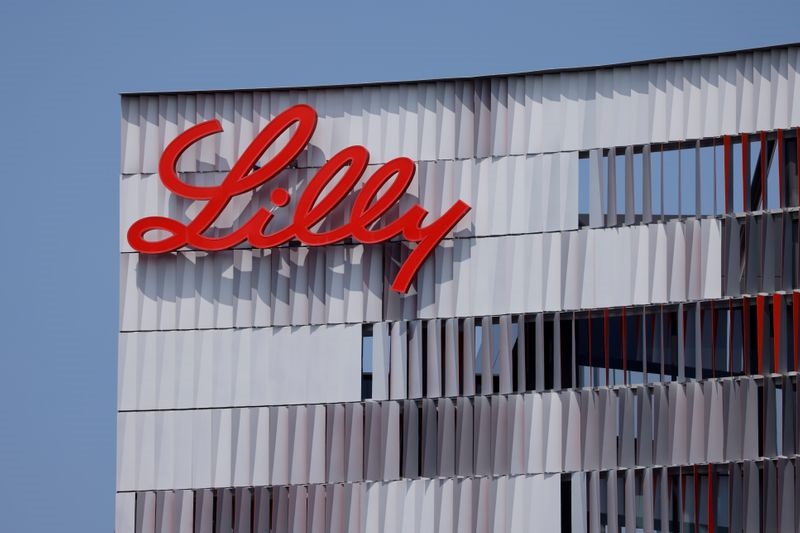Intel stock extends gains after report of possible U.S. government stake
On Monday, Bernstein analysts, including Courtney Breen, maintained a positive outlook on Eli Lilly (NYSE:LLY) shares, reiterating an Outperform rating and a price target of $1,100.00. This aligns with the broader analyst consensus, as tracked by InvestingPro, which shows strong bullish sentiment with price targets ranging from $620 to $1,190. The optimism follows the U.S. Food and Drug Administration’s announcement that the shortage of semaglutide, a drug used in diabetes treatment, has been resolved. This development is deemed beneficial for Eli Lilly’s diabetes drugs Mounjaro and Zepbound, as well as for the broader class of GLP1 brand medications.
The resolution of the semaglutide shortage is particularly significant for Eli Lilly because the majority of compounded GLP1 products are based on semaglutide rather than tirzepatide. Compounded drugs are personalized medications made by pharmacists to meet individual patient needs when commercially available drugs are not suitable. The cessation of semaglutide compounding is expected to prompt a shift in patient preference from compounded products to commercially branded drugs like those offered by Eli Lilly.
The analysts at Bernstein believe that Eli Lilly is well-positioned to benefit from this shift. As patients move from compounded semaglutide to branded products, Eli Lilly’s Mounjaro and Zepbound are likely to see increased uptake. This transition could potentially bolster Eli Lilly’s standing in the market for GLP1 diabetes treatments. The company’s strong market position is reflected in its impressive 32% revenue growth and robust gross profit margin of 81.3%. InvestingPro data reveals that Eli Lilly maintains a strong financial health score, with particularly high marks in profitability and price momentum.
Eli Lilly’s Mounjaro and Zepbound are part of a class of drugs known as GLP1 receptor agonists, which are used in the management of type 2 diabetes. These medications work by mimicking the functions of the natural hormone GLP1, helping to lower blood sugar levels and offering potential weight loss benefits.
The FDA’s recent announcement is a positive development for patients requiring GLP1-based treatments and for pharmaceutical companies like Eli Lilly that produce these medications. Eli Lilly’s stock performance and market share in diabetes care may see a favorable impact as a result of this regulatory update. According to InvestingPro, the company currently trades above its Fair Value, though its low beta of 0.41 suggests relatively stable price movements. For deeper insights into Eli Lilly’s valuation and growth prospects, including access to 16 additional ProTips and comprehensive financial analysis, investors can explore the full Pro Research Report available on InvestingPro.
In other recent news, Eli Lilly has made significant financial moves by issuing $6 billion in new debt securities across six tranches with maturities ranging from 2028 to 2065. The proceeds from this offering are expected to be used for general corporate purposes, including refinancing existing debt and funding capital expenditures. Additionally, Eli Lilly has announced a $6.5 billion six-part note offering, which has been rated Aa3 by Moody’s (NYSE:MCO) and A+ by S&P, reflecting confidence in the company’s financial stability. Moody’s has also upgraded Eli Lilly’s issuer rating to Aa3 from A1, citing expectations of robust earnings growth driven by the company’s incretin portfolio and other blockbuster products.
In terms of product developments, Eli Lilly’s drug Omvoh has demonstrated sustained efficacy in treating Crohn’s disease, with 92.9% of patients remaining in clinical remission after two years. The drug, approved by the FDA for Crohn’s disease, is also being studied for other inflammatory conditions. In analyst activity, Bernstein has reiterated an Outperform rating on Eli Lilly’s stock with a target price of $1,100, highlighting the company’s competitive position in the weight loss treatment market. This comes amid favorable data comparisons with competitor Novo Nordisk (NYSE:NVO), which has delayed its own weight loss drug, potentially benefiting Eli Lilly’s market positioning.
This article was generated with the support of AI and reviewed by an editor. For more information see our T&C.
